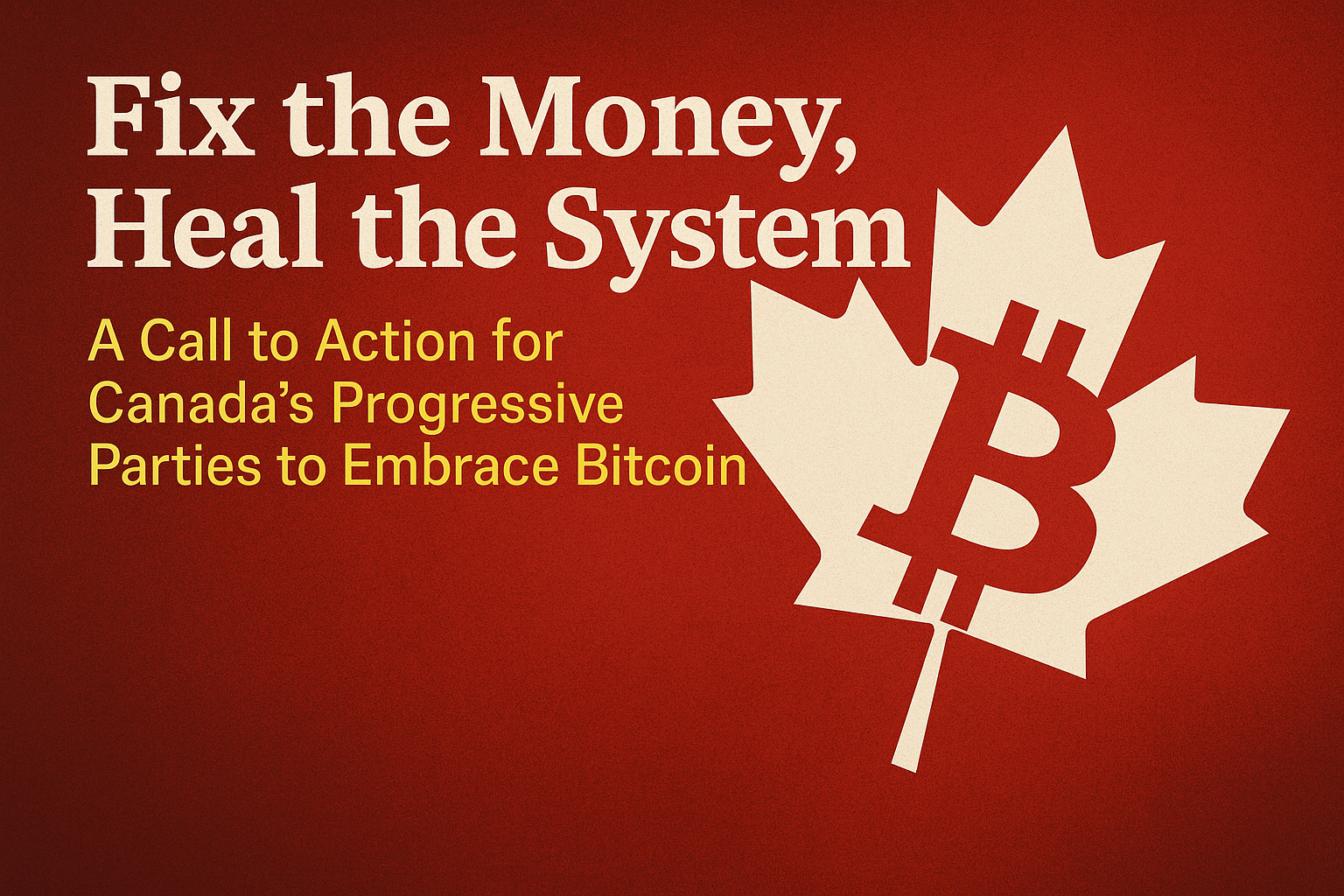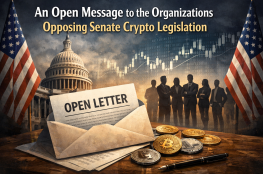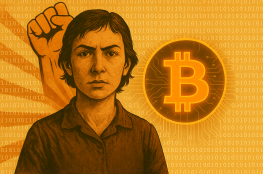A Call to Action for Canada’s Progressive Parties to Embrace Bitcoin
EXECUTIVE SUMMARY
Across Canada and around the world, progressive political parties and movements are at a defining crossroads. Growing wealth gaps, housing unaffordability, food insecurity, the erosion of pensions and retirement savings, and many other signs of social distress are not isolated policy challenges—they are symptoms of a deeper systemic disorder: a broken monetary and financial foundation that rewards speculation, debt, and extraction while devaluing work, savings, and cooperation,.
To build an economy and future that truly work for everyone, Canada’s progressive parties—the New Democratic Party, the Green Party of Canada, and progressive factions within the Liberal Party of Canada and Bloc Québécois—must recognize that monetary and financial reform is not a fringe concern but a moral and structural imperative. It is the foundation upon which every social, economic, and environmental goal depends. At the centre of this renewal stands Bitcoin: a neutral, open-source, decentralized, and global public good designed to restore fairness, accountability, and resilience to the world’s economic systems.
Bitcoin is not a corporation or a government project; its governance and operations are truly decentralized and on a global scale. It is simultaneously three things: the world’s largest distributed computing network, an open-source communications protocol for value exchange, and a digital, borderless currency (BTC) that functions without intermediaries or central control.
Often described as both the discovery of digital scarcity and the realization of the separation of money and state,, Bitcoin also represents something deeper—what philosophers Andrew M. Bailey, Bradley Rettler, and Craig Warmke call resistance money. It is a form of money built to withstand coercion, censorship, and financial exclusion. In a world where access to banking and freedom to transact can be denied, Bitcoin offers individuals and communities a parallel system—one that resists centralized abuse of power, one that empowers the unbanked and financially marginalized, and one that secures the basic right to hold and transfer value freely.
Across the world—including in Canada, the United States, Europe, Australia, New Zealand and elsewhere—Bitcoin is being adopted by marginalized and underbanked communities seeking financial autonomy. It functions as a tool of economic justice and self-determination, helping individuals, families, and organizations to save outside predatory systems, to connect globally, and to build intergenerational wealth.
Rooted in the cypherpunk tradition of privacy, equity, and freedom, Bitcoin embodies many of the same ideals that have animated progressive politics for over a century: fairness, transparency, decentralization, and stewardship of the commons. It democratizes access to finance in the same way that the Internet democratized access to information.
At the same time, it is critical to clearly distinguish Bitcoin from the broader “crypto” industry and the failures of centralized exchanges such as FTX and Celsius. As Andrew Lonero argues in “Bitcoin Is Not Crypto: Why It Matters,” conflating Bitcoin with speculative, centralized tokens and exchanges obscures its purpose as open-source digital infrastructure designed for transparency, equity, and shared benefit. Bitcoin’s decentralized governance, fixed supply, and other characteristics set it apart as a public good in digital form—the ethical and technological foundation of the digital asset world.
A Progressive Tool for a Fairer, More Sustainable Future
For progressives, Bitcoin is not about speculation and mere profit—it is about sovereignty, inclusion, integrity, and the prospect of truly building a better world. Bitcoin’s design and characteristics offer tangible ways to advance more just and equitable social, economic and environmental objectives for Canada and the world. These include, for example:
Financial inclusion and labour protection – Bitcoin allows unbanked, underbanked, and socio-economically excluded individuals to save and transact globally without corporate or government intermediaries. For workers, savers, and retirees, it preserves purchasing power in the face of inflation, strengthening the social foundations of wage justice, fair pensions, and intergenerational equity.
Environmental innovation and energy abundance – Sixty percent of global Bitcoin mining now draws from renewable or stranded energy, with over 52% coming from renewable energy sources,. Around the world—from Texas to Kenya, Iceland, Bhutan, and Manitoba—Bitcoin miners are financing new renewable energy projects, stabilizing energy grids, and capturing harmful methane that would otherwise escape into the atmosphere,. Bitcoin turns waste into energy abundance and is rapidly becoming a partner technology in the global decarbonization effort. For countries, including Canada, Bitcoin mining also has the unique capacity to anchor the scale up of data centres necessary for the digital age of tomorrow, prioritizing privacy and data sovereignty.
Civil and human rights – Bitcoin defends privacy and autonomy against surveillance-based currencies and financial systems. In an era of growing digital control, where state and corporate actors increasingly weaponize financial infrastructure, Bitcoin restores the individual’s right to hold and transact value freely. Its decentralized architecture eliminates the need for permission from banks or governments, allowing anyone—including journalists, activists, and marginalized groups—to organize, communicate, and exchange resources beyond the reach of coercion. Ultimately, Bitcoin operationalizes the ideals expressed in the Universal Declaration of Human Rights—Article 17’s right to own property and Article 19’s right to freedom of expression—by ensuring that control over one’s labour, voice, and resources cannot be revoked by decree.
Community empowerment, Indigenous empowerment – For a wide range of communities, including Indigenous communities, the saving in Bitcoin and using Bitcoin within a local circular economy can enhance economic, social and cultural sovereignty, aligning with traditional stewardship values, and strengthening self-governance. Co-locating Bitcoin mining at hydro, wind, solar, or biomass sites can monetize stranded and excess capacity, generating local employment, income and economic development. These align with the NDP’s vision of cooperative, community-based solutions to economic exclusion.
Small-business and community resilience – Peer-to-peer Bitcoin payments reduce transaction fees and dependence on multinational payment processors, empowering local entrepreneurs and cooperatives. This supports the Green Party’s and Bloc Québécois’ advocacy for circular economies and community enterprise, and it echoes the Liberal Party’s emphasis on innovation-driven small-business growth. Bitcoin helps level the playing field, giving local entrepreneurs and small businesses access to a near-borderless global marketplace.
Public accountability and democratic transparency – Bitcoin’s open ledger is a model for transparent governance. It enables verifiable, tamper-proof accounting that can reduce corruption, improve fiscal reporting, and build public trust—key goals for all progressive parties. Unlike other financial and accounting systems which are heavily dependent upon trust and can be easily obfuscated, the open Bitcoin ledger is audited on a global scale every ten minutes on average.
“Bitcoin is absolutely a tool for social justice. If you think about Black Americans, we believe that Bitcoin allows [us] to build generational wealth. And not just Black Americans … Latino Americans, the LGBT communities and Indigenous communities. It allows communities to build wealth in communities that have been left out of the discriminatory banking system that we have today.”
Charlene Hill Fadirepo
Former Audit Manager, U.S. Federal Reserve
Author of The Bitcoin Leap: How Bitcoin Is Transforming Africa
A Cross-Party Opportunity for Renewal
Each of Canada’s progressive political traditions finds something of itself reflected in Bitcoin—not as a partisan tool, but as a moral and practical instrument for renewal. For the New Democratic Party, Bitcoin aligns with the cooperative-economics tradition, worker empowerment, and the protection of wages and pensions from inflation. For the Green Party, it advances transparency, renewable energy innovation, and the defense of privacy as both an ecological and civic right. For the Liberal Party, it offers a path to digital infrastructure leadership, inclusive entrepreneurship, and sustainable fiscal governance. For the Bloc Québécois, it reinforces Quebec’s economic sovereignty, energy leadership, and cultural autonomy while strengthening local and cooperative economies.
Together, these values converge around a shared progressive goal: to build a fair, sustainable, and transparent economy that empowers people and communities, protects the environment, and restores integrity to public life. Bitcoin is the meeting point where social democracy, environmental justice, and fiscal responsibility align. It gives progressives a common language of renewal — one grounded not in ideology, but in practical compassion, moral coherence, and an ethic of greater global cooperation.
A Call to Action
Adopting a forward-looking stance on Bitcoin is not about speculation or ideology; it is about justice, sustainability, and innovation. It is about giving every resident of Canada—from urban workers to agriculture-based communities, from First Nations to recent newcomers—access to a more transparent, inclusive, and resilient economic foundation. Across party lines, progressives can unite around ten key policy actions that together form a blueprint for renewal across our country.
- CREATE A NATIONAL SOUND-MONEY AND INCLUSION STRATEGY — Develop a coordinated federal plan to promote financial literacy, open-source Bitcoin education, and equitable access to digital financial tools. This would include a National Dialogue on Monetary Ethics to reimagine money as a public good and reconnect Canadians with the moral foundations of fairness and accountability.
- BUILD CLIMATE-RESILIENT INFRASTRUCTURE BASED ON BITCOIN — Recognize Bitcoin mining as a flexible grid stabilizer that monetizes renewable surplus, captures waste methane, and supports the decarbonization of Canada’s energy systems. Through tax credits and green incentives, Bitcoin can help transform environmental liabilities into assets. In so doing, it can also help us build the digital infrastructure and data sovereignty we need for the digital age of today and tomorrow.
- COMMIT TO DEMINIMIS TAX EXEMPTION FOR BITCOIN TRANSACTIONS — Amend the Income Tax Act to exempt everyday Bitcoin payments under a reasonable threshold, such as $10,000, from capital-gains tax. This would normalize digital commerce, empower small businesses, unleash pent up capital into our economy, and simplify compliance while stimulating innovation across the economy. It would also enable not-for-profit and charitable organizations across Canada to benefit more fully from the many use cases of Bitcoin as a tool for individual, family and community empowerment.
- PROTECT CIVIL LIBERTIES IN DIGITAL FINANCE — Guarantee the right of Canadians to transact peer-to-peer without surveillance or discrimination. Embedding financial privacy in law would protect democracy itself and bolster freedom from oppression in an era of increasing digital control.
- SUPPORT UNION AND PENSION FUND DIVERSIFICATION — Modernize pension legislation to allow responsible Bitcoin exposure under ethical and sustainability standards. This would protect intergenerational equity, ensure worker savings retain real value, and align Canada’s public and private retirement systems with long-term resilience.
- ADVANCE INDIGENOUS AND REGIONAL SOVEREIGNTY — Empower Indigenous, rural and remote communities to deploy Bitcoin-powered microgrids and renewable energy projects, monetizing local resources and strengthening self-governance. This aligns the energy transition with reconciliation and community independence.
- ESTABLISH A FEDERAL STRATEGIC BITCOIN RESERVE — The Government of Canada should accumulate and hold Bitcoin as part of its diversified treasury assets. This would hedge against global currency volatility, enhance fiscal stability, and assert Canada’s leadership in monetary innovation.
- PILOT MUNICIPAL BITCOIN TREASURIES — Enable cities and towns to hold Bitcoin reserves as inflation hedges and funding mechanisms for green infrastructure, affordable housing, and community resilience projects, demonstrating fiscal innovation at the local level.
- PROMOTE LOCAL CIRCULAR ECONOMIES — Support cooperatives and community enterprises that use Bitcoin for local trade and financing. This strengthens economic self-reliance, reduces reliance on intermediaries, and keeps wealth circulating within communities.
- INCLUDE BITCOIN IN INTERNATIONAL DEVELOPMENT POLICY — Integrate Bitcoin into Canada’s global-development partnerships to promote financial inclusion, renewable energy, circular-economy projects, and human rights abroad. This would extend Canada’s progressive leadership and ethical influence on the world stage.
These ten recommendations are not merely technical reforms, they are statements of renewed values and moral commitments. Together, they form a blueprint for progressive monetary renewal that unites fiscal integrity with environmental stewardship, and technological innovation with human dignity.
Bitcoin offers progressives the chance to lead not only with policy but with principle—to show that fairness and sustainability can be rebuilt from the ground up, beginning with the money that underwrites every social and ecological promise. By embracing Bitcoin as public infrastructure for the common good, Canada’s progressives can set an example for the world: proving that democracy, when anchored in truth and transparency, remains the most powerful force for justice and renewal on Earth.

Scott A. Wolfe is Global Coordinator of the Federation of Bitcoin Circular Economies (FBCE), advancing financial inclusion and community socio-economic development around the world. Prior to this, Scott had a 20-plus year career in the not-for-profit health and community development sector, most recently for 15 years as Executive Director of the Canadian Association of Community Health Centres and International Federation of Community Health Centres. He also served, previous to that, with the International Association of Providers of AIDS Care in Chicago/Johannesburg and the Pan American Health Organization in Washington, DC. He is based in Toronto, Canada.




